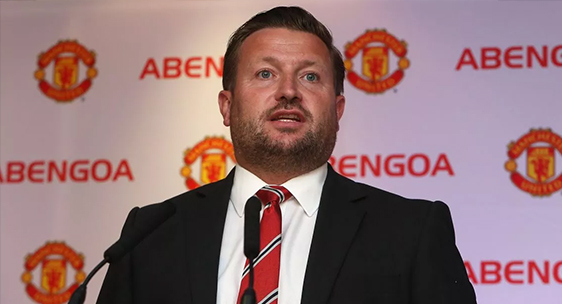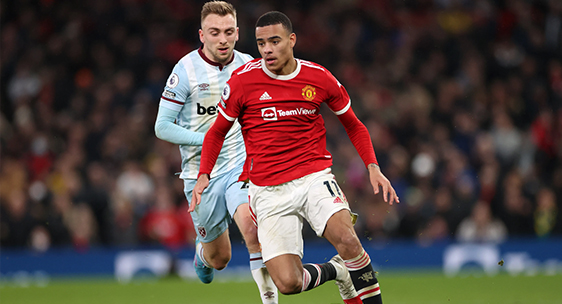Corporate mission statements can be uniquely dull and revealing at the same time. For some organisations, they serve as a guiding light; for others – an afterthought – left to gather dust on a shelf.
Manchester United’s mission statement makes for particularly interesting reading. It talks about “winning the United way”. It states a belief that the club “should be a part of the community in the widest sense, and that its success should not only be measured in the number of trophies it wins, but also by the impact it has on the community in which it exists.’ According to the text “everyone at the club is committed to tackling environmental and social issues.”
That statement against the club’s perceived about-face in their approach to the Mason Greenwood affair makes for curious examination.
Tumultuous exit.
After many months of extended deliberation, Manchester United and Mason Greenwood parted ways in early September by ‘mutual’ consent. The 21-year-old made a loan switch to Spain on transfer deadline day after it was announced he would join La Liga side Getafe CF, where he will spend the season on loan.
Last Sunday, Greenwood played his first competitive game since January 2022.
As Greenwood departed, CEO Richard Arnold released a statement seemingly acknowledging that, saying: “All those involved, including Mason, recognise the difficulties with him recommencing his career at Manchester United. It has therefore been mutually agreed that it would be most appropriate for him to do so away from Old Trafford, and we will now work with Mason to achieve that outcome.”
However, just one week earlier, the mood music coming out of Old Trafford appeared very different. According to media reports, Arnold’s eventual statement marked a dramatic U-turn on the part of the club; a U-turn prompted by a vocal backlash to its rudderless media kite-flying and indecision in the preceding days.

Right decision, for the wrong reasons.
In those final hours, it appears the club recognised that the public anger wasn’t going to dissipate. Ultimately, it reached the right decision, but for the wrong reasons. At face value, the outcome is the same, but by visibly dragging its heels, it has undone any sense of moral leadership or conviction along the way. In addition, the club’s very public decision earlier in the month to delay the process to allow time to consult with Manchester United women’s players Mary Earps, Ella Toone and Katie Zelem, who were at the time away on England World Cup duty, made the players unnecessary targets for abuse.
In Arnold’s Open Letter to the Fans, he stated that he was “satisfied that Mason did not commit the acts he was charged with, Mason’s accepted that he has made mistakes which he takes responsibility for.”
For some onlookers, police dropping charges against Greenwood brought the matter to a close. However, those that view the argument in these very binary legal terms are missing the bigger picture. Manchester United is not your average employer. The club is one of the UK’s most iconic institutions. It has a captive audience of 100s of millions around the world. The manner in which it engages with issues relating to domestic and sexual violence can set the tone for how these issues are viewed in wider society, particularly amongst young men.
The case also played out to a legal backdrop whereby only one per cent of rape allegations reported to the police in the UK result in conviction. Even when legal proceedings commence, nearly 70% of alleged sexual assault victims withdraw from the process.

A duty of care
Across the two statements, the club talked about a ‘duty of care’ and showing ‘support for Mason and his family during this period of transition’. In principle, employers talking about a duty of care to their employees is a perfectly reasonable position to take. However, professional football is an unapologetically ruthless industry. Young footballers are routinely discarded as soon as it makes financial sense for the clubs to do so. Those who have passed through the system will have a wry smile at the prospect of duty of care.
This benign language may serve a purpose in the context of a talented footballer like Mason Greenwood; however, one would anticipate it may trip them up at a later date when they are feeling less compassionate in their handling of an inferior football talent.
In recent years, we have seen brands look to use their platform to advocate on prominent social issues. In principle, this is to be welcomed. However, these public declarations of support need to be underpinned by substance and consistency, even if there is a financial cost. Failure to do so will be rightly met with public anger and cynicism. Furthermore, the self-serving choice of words that buys you time in the short term may be your undoing in the long run.
For Manchester United, parting ways with a valuable on-the-pitch asset clearly hurts, but for a club that talks in the elevated terms of having a positive ‘impact in its community’ and ‘tackling social issues’, it has failed to live up to its own stated ideals. While the on-the-pitch outcome is the same, it has passed up the opportunity to demonstrate meaningful leadership on a critical societal issue.
Instead, it played for time, looked to see which way the wind was blowing, and ultimately damaged its credibility in the process.

With his intelligent communications skillset and extensive media connections, Paddy helps clients build stand-out messaging and achieve their business objectives, whether they’re a start-up raising seed capital or an established player pushing for industry reform or telling their employer brand story. Paddy has been published in a number of national publications, including the Business Post, Irish Independent, Fora.ie, and The42.ie on the theme of strategic communications and reputation management.
